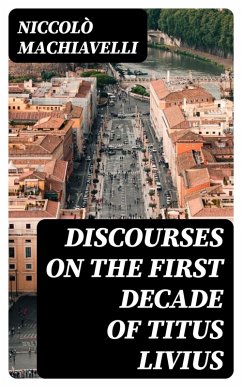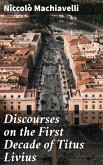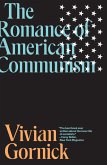In "Discourses on the First Decade of Titus Livius," Niccolò Machiavelli explores the intricacies of political theory through a meticulous examination of ancient Roman history as chronicled by Livy. The work is characterized by Machiavelli's incisive analytical style, where he employs a blend of historical narrative and philosophical reflection to unpack the dynamics of power, governance, and civic virtue. Machiavelli argues for the relevance of republicanism and the importance of civic engagement, juxtaposing the strengths and weaknesses of different governmental structures within the context of human nature and historical precedent. This pioneering work is significant not only for its political insights but also for its impact on Enlightenment thought and modern political theory. Machiavelli, a prominent figure of the Renaissance, drew from his experiences as a diplomat and political advisor in Florence, where he witnessed the tumultuous interplay of power and the fragility of republics. His keen observations on the nature of authority, morality, and citizenship in "Discourses" reflect his resolve to inform contemporary leaders about the enduring principles of governance and the potential for civic corruption. His works are steeped in a profound understanding of historical cycles and human behavior, making him a foundational figure in political philosophy. I highly recommend "Discourses on the First Decade of Titus Livius" to readers who seek to comprehend the roots of modern political discourse. Machiavelli's reflections initiate deeper debates about the nature of power, the role of the citizen, and the moral dimensions of leadership. Whether for scholars of political science or general readers interested in history and ethics, this book serves as an essential guide to understanding the complexities of governance and the imperatives of fostering civic responsibility.
Dieser Download kann aus rechtlichen Gründen nur mit Rechnungsadresse in A, B, BG, CY, CZ, D, DK, EW, E, FIN, F, GR, H, IRL, I, LT, L, LR, M, NL, PL, P, R, S, SLO, SK ausgeliefert werden.









